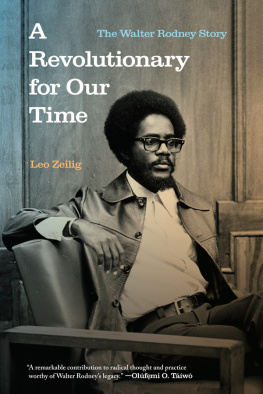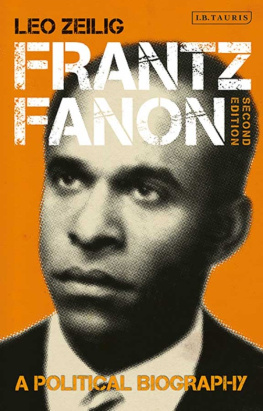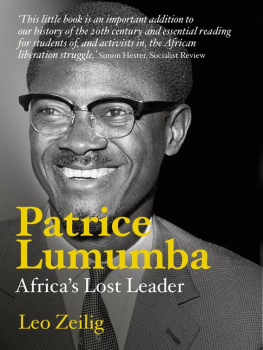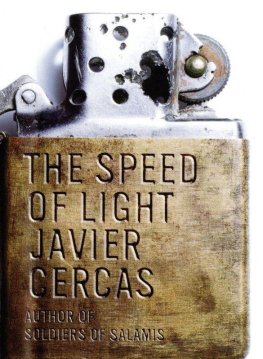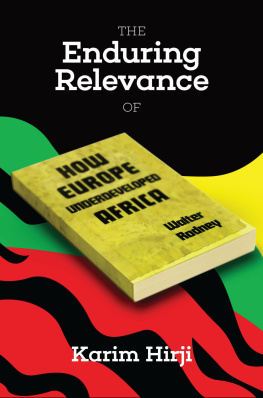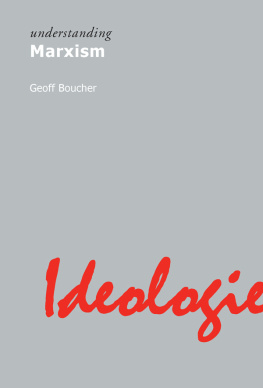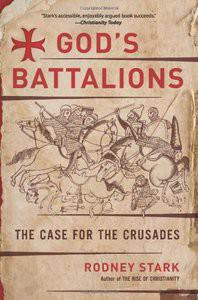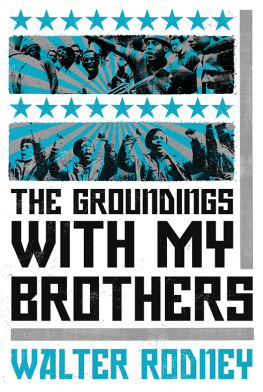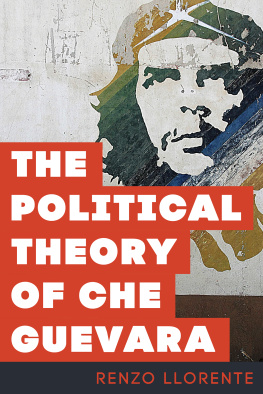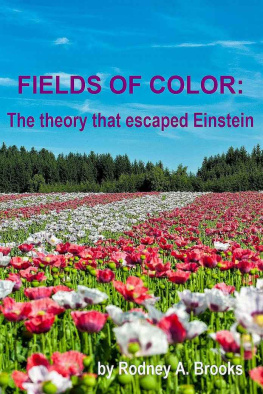Contents
Landmarks
Praise for A REVOLUTIONARY FOR OUR TIME
This book is a welcome addition to the composition on the life and death of Walter Rodney and deals with the cover up of his assassination in the most authentic way since the Commission of Inquiry report of 2016.
Donald Rodney
Seeing, listening to or reading Walter Rodney, before and after his unfortunate death, something always puzzled and stayed with methe how of Walter Rodney. How did this relatively young brother from a small Caribbean nation gain such a vast world view? How was he able to grasp the conditions of the Pan-African world so firmly and translate those conditions through his socialist worldview? How was Rodney able to move so fluidly, accepted and loved as kin, through communities across the whole Pan-African world? How did he become the number one target of a Guyanese government desperately plotting to end his life? And of late, my big one, how does Walter Rodney still endure timelessly in the immediate consciousness of so many Pan-African activists and thinkers today? Without fail Leo Zeiligs enduring A Revolutionary for Our Time answered these and so many other hows beyond my considerations.
Paul Coates, Black Classic Press
Through exacting research, exacting presentation, and careful analysis, Leo Zeilig offers a remarkable contribution to radical thought and practice worthy of Walter Rodneys legacy.
Olfemi O. Tw, assistant professor of philosophy at Georgetown University and author of Reconsidering Reparations and Elite Capture
Leo Zeilig takes readers through the choices that Walter Rodney made. Choices both small and large, but all taking Rodney to the heights of scholarship, organization, family, comradeship. Zeilig offers a compelling narrative and an incisive analysis of Rodneys ferocious commitments to revolutionary change. This is a fascinating and vital study of Rodneys life.
Diane C. Fujino, author of Heartbeat of Struggle: The Revolutionary Life of Yuri Kochiyama
The Black Lives Matter movements embrace of radical and Pan-Africanist ideas has introduced Walter Rodney to a new generation of activists. A Revolutionary for Our Time is an urgently-needed contribution, one that situates the importance of Rodneys Marxism, his life and work, in working-class and antiracist struggle. It is a must-read account of a revolutionary who understood that nothing short of socialism could bring liberation.
Lee Wengraf, author, Extracting Profit: Imperialism, Neoliberalism, and the New Scramble for Africa
This is a splendid narrative of Walter Rodneys legendary life and work across three continents. Leo Zeiligs singular achievement is to have brilliantly located Rodney, the Black Power Marxist, at the intersection of the politics of radical nationalism and visionary socialism that suffused the Pan-African world in the 60s and 70s. An unforgettable read.
Issa Shivji, emeritus professor, University of Dar es Salaam
A Revolutionary for Our Time is both timely and necessary. Through Walter Rodneys ideas and actions, it engages the weighty issues of the current moment. More than a biography of a remarkable individual, we get the optics of a family committed to radical, worldwide transformation and the crosscurrent of people who embraced them as well as the local-global networks of power they dared to challenge.
Kwasi Konadu, John D. and Catherine T. MacArthur Endowed Chair, Colgate University
The book connects Rodneys thinking to his lived experiences across the world and the decades in which he lived. At a time when context is particularly essential, Zeiligs book provides an essential narrative that situates Rodney not only in the history of revolutionary thought, but also at our contemporary moment, arguing that Rodneys ideas make him a revolutionary not only for his but for our time.
Erin MacLeod, Vanier College
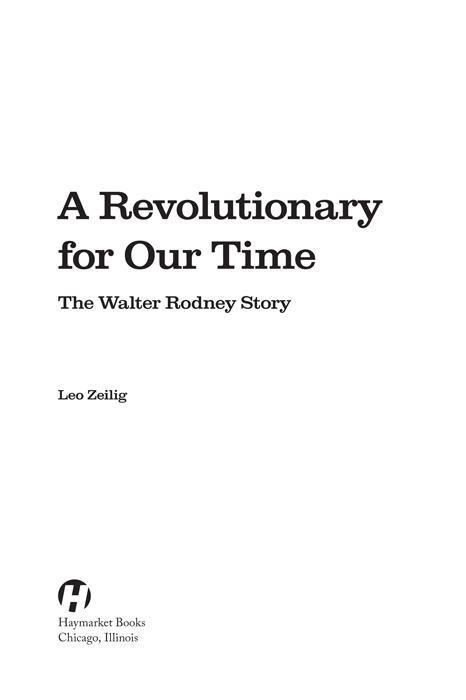
2022 Leo Zeilig
Published in 2022 by
Haymarket Books
P.O. Box 180165
Chicago, IL 60618
773-583-7884
www.haymarketbooks.org
ISBN: 978-1-64259-678-6
Distributed to the trade in the US through Consortium Book Sales and Distribution (www.cbsd.com) and internationally through Ingram Publisher Services International (www.ingramcontent.com).
This book was published with the generous support of Lannan Foundation and Wallace Action Fund.
Special discounts are available for bulk purchases by organizations and institutions. Please email for more information.
Cover photograph from the Walter Rodney Papers, Atlanta University Center Robert W. Woodruff Library Archives. Cover design by Rachel Cohen.
Library of Congress Cataloging-in-Publication data is available.

For Tunde Zack-Williams, Janet Bujra, and Peter Lawrence
Preface
At the end of May 2020, I stared, sickened, at the footage of George Floyd being slowly choked to death by Minneapolis police. I marched in the first demonstrations in my hometown of London with thousands of protestors, most of whom were under the age of twenty-five. At the end of the month, we gathered near the US embassy in the capitals southern borough of Battersea. Once again, there were several thousand of us, many with homemade placards in hand. The mood was angry, and we were not going anywhere. Police had formed a human barricade, leaving no way for us to reach the embassy. In front of me, about twenty meters from where I stood with hundreds of other mask-wearing demonstrators, there was a wall about two meters high. A young man, about fifteen, scrambled up the wall, helped by his friends. When he was finally standing, he turned matter-of-factly to the crowd sprawled below him. At first his words, shouted into the microphone of a small handheld megaphone, were difficult to hear due to the static and crackle of the machine; he repeated, We shouldnt wait here, wasting our time. We need to march to Downing Street and confront the prime minister. There was a cheer, and the boy proceeded to clamber down, falling into waiting hands and arms. He and a convoy of his friends proceeded to the front of the protest, toward the road that would lead us out of the impasse. Following his instructions, the entire protest then marched to Westminster and Downing Streetthe center of the UK government.
It was exhilarating to be led by a fifteen-year-old, who told us clearly what we needed to do. I thought of Walter Rodney and imagined the pleasure he would have felt witnessing the same scene; a pleasure no doubt tempered by frustration that, decades later, we were still fighting the same fight. However, more than anything else, the extraordinary Black Lives Matter movement would have thrilled and excited him. It would also have told him where he needed to be: where he always was, at the site of burgeoning rebellion. The Black Lives Matter movement has rippled across the globe, and its demand for justice and answers to decades-long violence and racism has resonated on every continent.
Interviewed a few weeks before his murder in 1980, Rodney explained to the journalist Margaret Arkhurst that in Africa he was known as a historian, in Jamaica as a political figure, and in Guyana as a historian and politician. But Rodney did not link politics to personal power, nor did he see himself as a politician. Representing the most radical elements of the Working Peoples Alliance in Guyana, Rodney sought an empowerment of the poor and working class for themselves, by their own hand, and in their own name. He knew there could be no change that was lasting or desirable that did not come through the action and mobilizations of the poor themselves.

